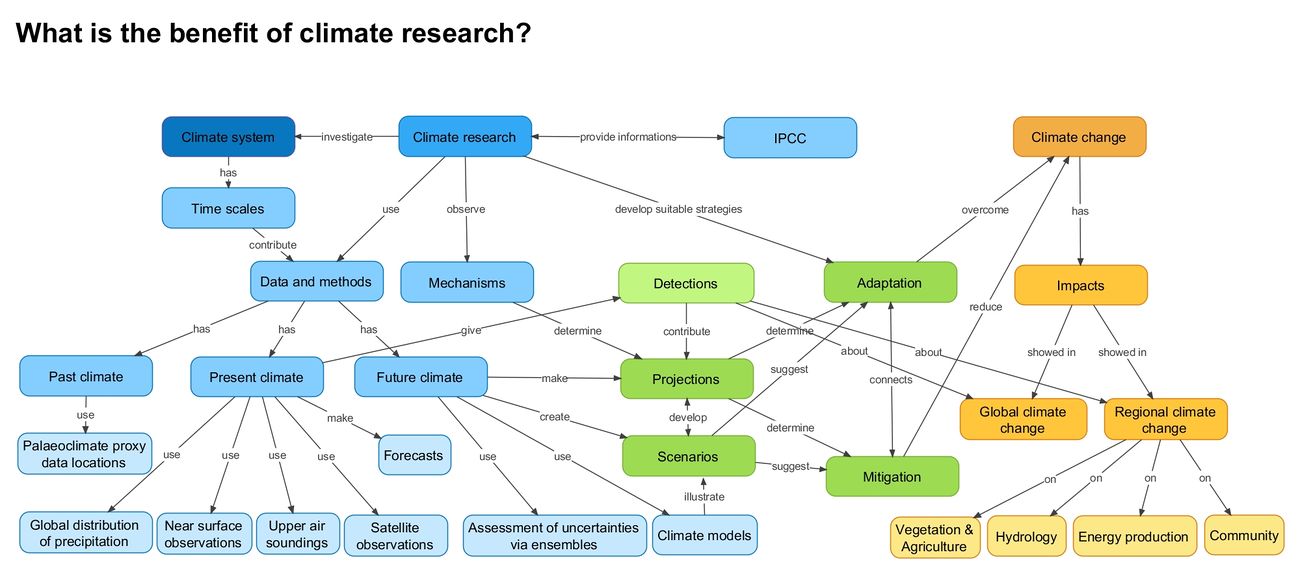Group B - Concept Mapping of Seminar Topics
- Back to working group overview
+
+
+
The Perspective of Climate Research
+
+
Concept Map
+
Dr. Klaus Görgen had presented the online seminar for International Master of Landscape Architecture from HfWU Nürtingen-Geislingen with the title "The perspective of climate research". He explained about the climate change and how the researches done.
Climate system is a process of nature with highly complex and non-linear interactions. It has five components, which are atmosphere, hydrosphere, cryosphere, land surface, and biosphere.
Climate change is a significant and lasting change in the statistical distribution of the earth's average weather patterns over periods ranging from decades to millions of years.
Climate models are mathematical representations of the climate system, expressed as computer codes and run on powerful computers. One source of confidence in models comes from the fact that model fundamentals are based on established physical laws, such as conservation of mass, energy and momentum, along with a wealth of observations.
Discussion
+
How reliable are the models used to make projections of future climate change?
IPCC (Intergovernmental Panel on Climate Change) so far assess the reports from 1990, 1995(SAR), 2001(TAR), 2007(AR4) until 2014(AR5). The recently report shows that there are further continuous improvement of the science, so the projections have a improved reliability and less uncertainty.
+
References:
IPCC, 2007: Climate Change 2007: The Physical Science Basis. Contribution of Working Group I to the Fourth Assessment Report of the Intergovernmental Panel on Climate Change [Solomon, S., D. Qin, M. Manning, Z. Chen, M. Marquis, K.B. Averyt, M.Tignor and H.L. Miller (eds.)]. Cambridge University Press, Cambridge, United Kingdom and New York, NY, USA. Eric J.Barron, 2004. Climate Models: How Reliable are Their Predictions?. Consequences Vol.1, No.3. US Global Change Research Information Office
+
Group B
Kinga Janossy, Melissa Puspitarini Abas, Fadera Williams (2012, November)
+
